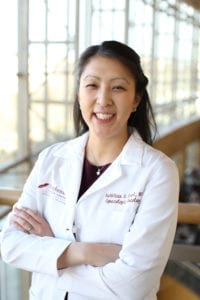No Man is an Island | Kathleen Essel, MD
Over the past year, I have had the distinct pleasure of attending three separate lectures on burnout. At the first lecture, I listened and tried to pay attention to the speaker, acutely aware of my own sleepiness and desire to be elsewhere. During the second lecture, I at least pretended to pay attention in an attempt to show that I wasn’t just there for the free fancy dinner. It wasn’t until the third lecture that I started to pay attention: The risk factors that predominate and are independently associated with burnout in almost every study ever conducted are younger age, long work hours and being female [Ann Surg 2009; 250: 463-71; J Am Coll Surg 2016;223:440]. As I sat listening to these numbers, it finally dawned on me: that’s me.

Kathleen Essel, MD
As physicians, we jump through a lot of hoops to get to where we are. We succeeded through high school, college, and medical school followed by rigorous training in residency and fellowship; we’ve taken board exam after board exam after board exam. In many circumstances it seems like we’ve all beaten the odds. So, I’m not surprised to know that most physicians don’t recognize their own burnout – or even realize that they are at risk.
What is there to do? Our various wellness curricula have a handful of recommendations: awareness, self-care, maintaining a positive outlook, remaining resilient. While all these are excellent strategies, I recently have come to recognize another valuable tool.
“Hey Katie, I just wanted to check in with you. I know it’s been a rough 48 hours, I just wanted to make sure you’re doing okay.”
Half-way through a particularly eventful call week full of sad outcomes, my attending called me specifically to ask me how I was doing. It’s funny how such a simple gesture can mean so much. Over the course of my training, one of my greatest assets and sources of encouragement has been in the camaraderie amongst my co-residents, and now, co-fellows.
I think that if we all made an effort to reach out and care for those around us–our students, trainees, attendings, partners–at some point we would also be taken care of. I think that John Donne put it best when he said, “No man is an island, entire of itself; every man is a piece of the continent, a part of the main.” None of us is ever alone, regardless of how much we might think that for ourselves, or for others.
Kathleen Essel, MD, is a Fellow in Gynecologic Oncology at Stephenson Cancer Center, University of Oklahoma Health Sciences Center in Oklahoma City, OK.